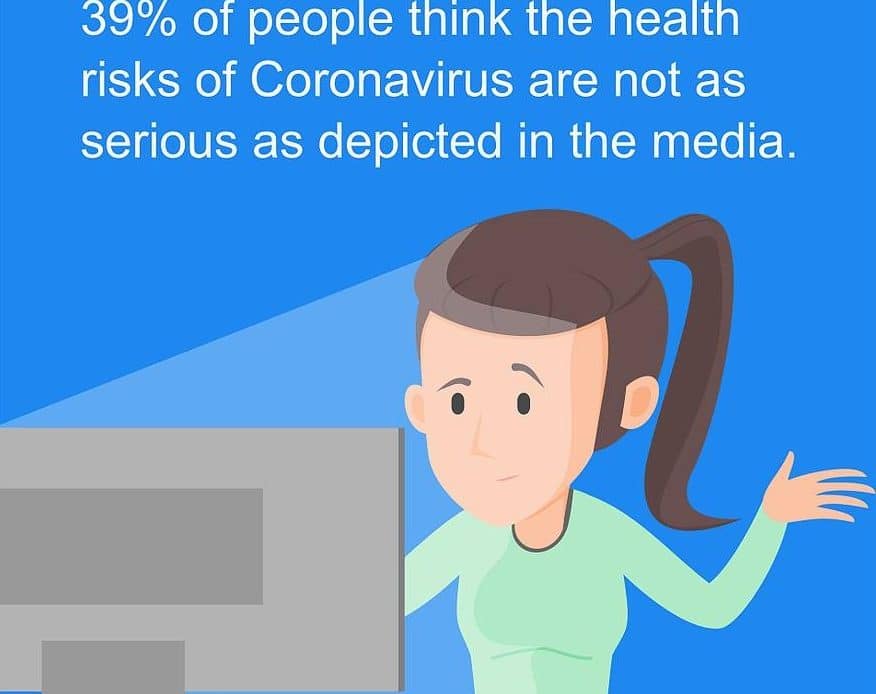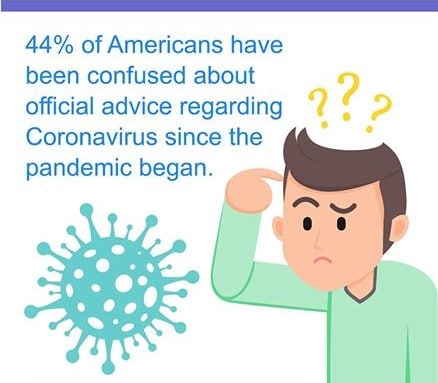
From White Hot PR, whitehotpr.com
44% of people admit they have been confused about official advice regarding the pandemic.
Half say they trust online news sources the most.
Over 1 in 3 are suffering from Covid-19 news fatigue.
With the open accessibility of the internet today and the alarmingly rapid rate at which information can be transmitted, internet users need to keep a constant and careful eye out for fake news. In some countries, it is actually a criminal offence to spread incorrect information about Covid-19, given the seriousness of the pandemic. In an effort to counteract the spread of misinformation surrounding Coronavirus, Facebook and Instagram recently launched* a new feature which warns users about posts containing incorrect information by flagging them. Instead, users are directed to factual, authoritative health resources provided by the World Health Organization.
For infographics on statistics from the survey, visit https://www.prpioneer.com/coronavirus-misinformation
PRPioneer.com, a resource for public relations information, conducted a survey of 2,400 adults (18+) across the U.S. to find out about their fake news fears, when it comes to Covid-19. It was found that half (50%) of Alabamians admit they are concerned about receiving misinformation about Coronavirus. Fake news fears are particularly significant when it comes to social media, considering the internet is a platform rife with user-generated content. Additionally, given that most of the country was under strict lockdown regulations, many people have been consuming online information more consistently since due to being behind a screen more often and for longer periods of time.
Broken down across the U.S., it emerged that South Carolinians are most fearful of Coronavirus fake news with 81% of respondents saying they are concerned about this. Comparatively, Utahns were least worried with just 32% saying this was the case.
Of course, no country was prepared for the shockwaves after the pandemic hit, therefore, official information may have come across as confusing to many citizens who rely on these sources as their sole news provider. In fact, almost half (44%) of respondents admitted they have been confused about official guidance regarding the Coronavirus. This is also problematic as people may then turn to unofficial resources to clarify facts, which is how information becomes hazy.
Despite that the internet is composed of large quantities of user-generated content, it seems most rely on this platform for trustworthy information. 45% of people say online is the media source they trust the most, followed by television (41%). 8% said they trust social media the most, 4% said word of mouth and 2% said it was radio news sources.
When there are so many different platforms to access resources regarding Covid-19, it can get overwhelming, causing anxiety and stress in everyday life as people are constantly absorbing information. Over 1 in 3 respondents (37%) say they are experiencing news fatigue regarding Coronavirus, suggesting a large proportion are overwhelmed with the large majority of media covering the topic at the moment.
*https://www.forbes.com/sites/abrambrown/2020/04/16/facebook-will-begin-warning-you-if-you-interact-with-fake-coronavirus-news/#4af879d5570a
For more information, please contact them on the details below:
white hot pr | lifestyle | info@whitehotpr.com
3415 NE 25th Avenue, Portland, Oregon, 97212






